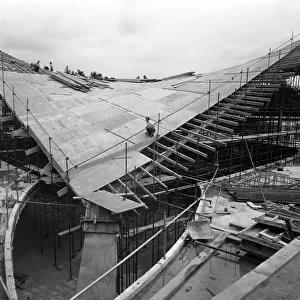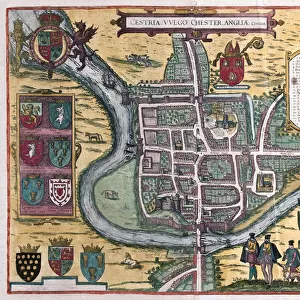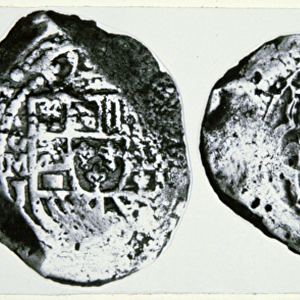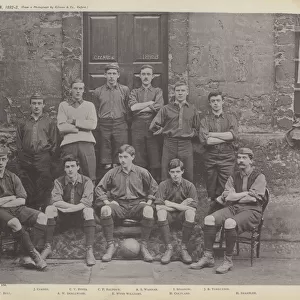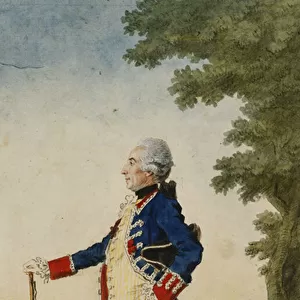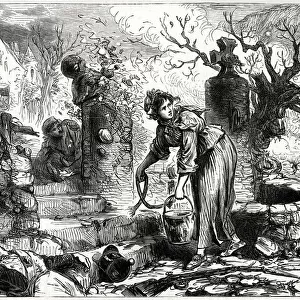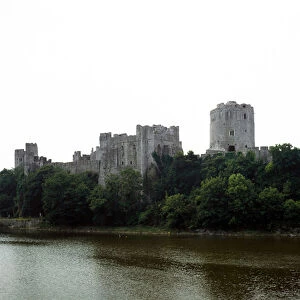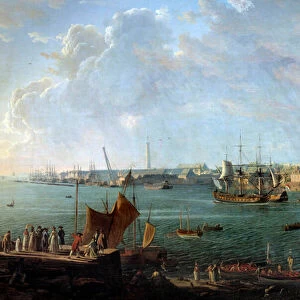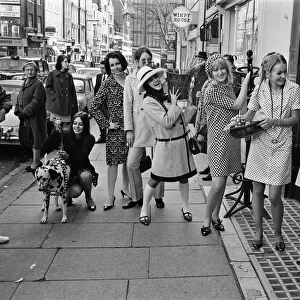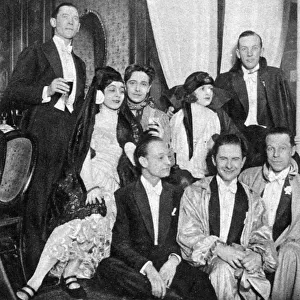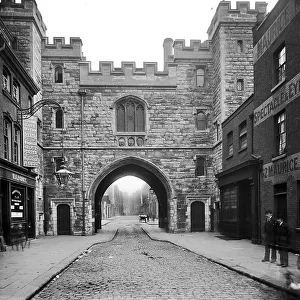Home > Europe > United Kingdom > England > London > Towns > Chelsea
Installing ribs JLP01_08_060838
![]()

Wall Art and Photo Gifts from Historic England
Installing ribs JLP01_08_060838
COMMONWEALTH INSTITUTE, KENSINGTON HIGH STREET, KENSINGTON AND CHELSEA, GREATER LONDON. Workers installing precast concrete ribs for the outer roof section at the western corner of the Commonwealth Institute exhibition hall.
Laing built the Commonwealth Institute between October 1960 and October 1962 to replace the former Imperial Institute that was to be demolished to make way for new facilities at Imperial College. The building consisted of a four-storey administrative block housing a library, restaurant, board room and conference hall and a separate two-storey b lock containing a cinema with an art gallery above, but the focus of the project was the exhibition hall with its hyperbolic paraboloid roof, the first of its kind constructed in Great Britain. The exhibition, designed by James Gardner, provided spaces where each of the Commonwealth nations could showcase their achievements and characteristics, primarily to school children as teaching aids to enliven history and geography lessons.
The shell arch of the central roof section was of reinforced concrete, cast in situ using timber formwork with rough sawn boards to provide a textured internal surface whilst the four outer " warps" were constructed using precast beams and wood wool slabs, blocks of shredded timber bound together in a cement paste and left visible from the interior. The entire roof was then clad in copper sheeting over a layer of vermiculite. It covers an area of 33, 700sqft, 183 feet square with the central section 93 feet square and ranges between 30ft high at its lowest and 80ft at the peaks
Historic England is the public body that champions and protects England's historic places
Media ID 24320030
© Historic England Archive
1960s Construction Exhibition Hall People Teamwork Work Conversation
FEATURES IN THESE COLLECTIONS
> Arts
> Artists
> G
> James Gardner
> Arts
> Portraits
> Pop art gallery
> Street art portraits
> Europe
> United Kingdom
> England
> Greater London
> Related Images
> Europe
> United Kingdom
> England
> London
> Boroughs
> Kensington and Chelsea
> Europe
> United Kingdom
> England
> London
> Towns
> Chelsea
> Europe
> United Kingdom
> England
> London
> Towns
> Kensington
> Historic England
> Industry
> Engineering and Construction
> Building the Commonwealth Institute
EDITORS COMMENTS
This print captures the intricate process of installing precast concrete ribs for the outer roof section at the western corner of the Commonwealth Institute exhibition hall. The renowned construction company, Laing, undertook this ambitious project between October 1960 and October 1962 in Kensington and Chelsea, Greater London. The Commonwealth Institute was built as a replacement for the former Imperial Institute to accommodate new facilities at Imperial College. Designed by James Gardner, its focal point was the exhibition hall with its groundbreaking hyperbolic paraboloid roof – a first-of-its-kind structure in Great Britain. This unique design allowed each Commonwealth nation to showcase their achievements and characteristics within designated spaces, primarily aimed at enriching history and geography lessons for school children. The central roof section's shell arch was meticulously constructed using reinforced concrete cast in situ with timber formwork that provided a textured internal surface. In contrast, four outer "warps" were assembled using precast beams and wood wool slabs made from shredded timber bound together with cement paste, creating an intriguing visual effect visible from inside. Covering an impressive area of 33,700 square feet (183 feet square), this architectural marvel stands tall between 30 feet high at its lowest point and reaches up to 80 feet at its peaks. Its copper sheet cladding over vermiculite adds both durability and aesthetic appeal to this iconic structure. Preserved within A© Historic England Archive's collection, this print offers a glimpse into the meticulous craftsmanship involved in constructing one of London's most significant cultural landmarks.
MADE IN AUSTRALIA
Safe Shipping with 30 Day Money Back Guarantee
FREE PERSONALISATION*
We are proud to offer a range of customisation features including Personalised Captions, Color Filters and Picture Zoom Tools
FREE COLORIZATION SERVICE
You can choose advanced AI Colorization for this picture at no extra charge!
SECURE PAYMENTS
We happily accept a wide range of payment options so you can pay for the things you need in the way that is most convenient for you
* Options may vary by product and licensing agreement. Zoomed Pictures can be adjusted in the Cart.


